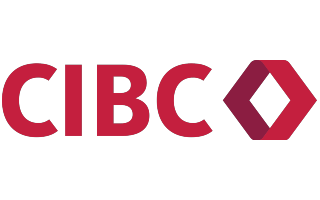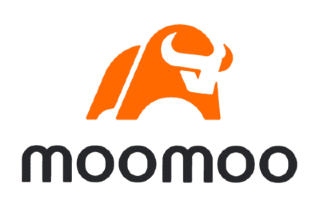NIKE is a footwear & accessories business based in the US. NIKE shares (NKE) are listed on the NYSE and all prices are listed in US Dollars.
Its last market close was $60.53 , which is a decrease of 2.23% over the previous week. NIKE employs 79,400 staff and has a trailing 12-month revenue of around $47.8 billion.Our top picks for where to buy Nike stock
How to buy NIKE stock
- Choose a stock trading platform. Compare investment platforms.
- Open an account. Provide your personal information and sign up.
- Fund your account. Deposit funds into your account by linking your banking information or transfer funds from another trading account.
- Search for the stock name – NKE. Search for the stock by name or ticker symbol.
- Buy the stock. Place your order. It's that simple.
Latest updates for NIKE
May 12, 2025: Stocks dependent on imports from China responded positively to news of a 90-day lowering of import tariffs on goods from the country (from a prohibitive 145%, in some cases, to a far more bearable 30%).
Buy NIKE, Inc. stock from these online trading platforms
Compare special offers, low fees and a wide range of investment options among top trading platforms.Note: The dollar amounts in the table below are in Canadian dollars.
Finder Score for stock trading platforms
To make comparing even easier we came up with the Finder Score. Trading costs, account fees and features across 10+ stock trading platforms and apps are all weighted and scaled to produce a score out of 10. The higher the score the better the platform - simple.
NIKE stock price (NYSE: NKE)
Use our graph to track the performance of NKE stocks over time.NIKE stocks at a glance
| Latest market close | $60.53 |
|---|---|
| 52-week range | $51.93 - $95.97 |
| 50-day moving average | $59.33 |
| 200-day moving average | $72.75 |
| Wall St. target price | $73.36 |
| PE ratio | 20.1096 |
| Dividend yield | $1.54 (2.55%) |
| Earnings per share (TTM) | $3.01 |
Is it a good time to buy NIKE stock?
The technical analysis gauge below displays real-time ratings for the timeframes you select. This is not a recommendation, however. It represents a technical analysis based on the most popular technical indicators: Moving Averages, Oscillators and Pivots. Finder might not concur and takes no responsibility.
This chart is not advice or a guarantee of success. Rather, it gauges the real-time recommendations of three popular technical indicators: moving averages, oscillators and pivots. Finder is not responsible for how your stock performs.
Is NIKE stock undervalued or overvalued?
Valuing NIKE stock is incredibly difficult, and any metric has to be viewed as part of a bigger picture of NIKE's overall performance. However, analysts commonly use some key metrics to help gauge the value of a stock.
NIKE's P/E ratio
NIKE's current share price divided by its per-share earnings (EPS) over a 12-month period gives a "trailing price/earnings ratio" of roughly 20x. In other words, NIKE shares trade at around 20x recent earnings.
That's relatively low compared to, say, the trailing 12-month P/E ratio for the NASDAQ 100 at the end of 2019 (27.29). The low P/E ratio could mean that investors are pessimistic about the outlook for the stock or simply that they're under-valued.
NIKE's PEG ratio
NIKE's "price/earnings-to-growth ratio" can be calculated by dividing its P/E ratio by its growth – to give 6.8291. A low ratio can be interpreted as meaning the stocks offer better value, while a higher ratio can be interpreted as meaning the stocks offer worse value.
The PEG ratio provides a broader view than just the P/E ratio, as it gives more insight into NIKE's future profitability. By accounting for growth, it could also help you if you're comparing the stock prices of multiple high-growth companies.
NIKE's EBITDA
NIKE's EBITDA (earnings before interest, taxes, depreciation and amortisation) is $5.8 billion.
The EBITDA is a measure of a NIKE's overall financial performance and is widely used to measure a its profitability.
NIKE financials
| Revenue TTM | $47.8 billion |
|---|---|
| Operating margin TTM | 6.99% |
| Gross profit TTM | $21 billion |
| Return on assets TTM | 8.26% |
| Return on equity TTM | 31.93% |
| Profit margin | 9.43% |
| Book value | $9.48 |
| Market Capitalization | $89.3 billion |
TTM: trailing 12 months
NIKE's environmental, social and governance track record
Environmental, social and governance (known as ESG) criteria are a set of three factors used to measure the sustainability and social impact of companies like NIKE.
When it comes to ESG scores, lower is better, and lower scores are generally associated with lower risk for would-be investors.
NIKE's total ESG risk score
Total ESG risk: 21.12
Socially conscious investors use ESG scores to screen how an investment aligns with their worldview, and NIKE's overall score of 21.12 (as at 12/31/2018) is excellent – landing it in it in the 15th percentile of companies rated in the same sector.
ESG scores are increasingly used to estimate the level of risk a company like NIKE is exposed to within the areas of "environmental" (carbon footprint, resource use etc.), "social" (health and safety, human rights etc.), and "governance" (anti-corruption, tax transparency etc.).
NIKE's environmental score
Environmental score: 5.55/100
NIKE's environmental score of 5.55 puts it squarely in the 6th percentile of companies rated in the same sector. This could suggest that NIKE is a leader in its sector terms of its environmental impact, and exposed to a lower level of risk.
NIKE's social score
Social score: 9.56/100
NIKE's social score of 9.56 puts it squarely in the 6th percentile of companies rated in the same sector. This could suggest that NIKE is a leader in its sector when it comes to taking good care of its workforce and the communities it impacts.
NIKE's governance score
Governance score: 13.01/100
NIKE's governance score puts it squarely in the 6th percentile of companies rated in the same sector. That could suggest that NIKE is a leader in its sector when it comes to responsible management and strategy, and exposed to a lower level of risk.
NIKE's controversy score
Controversy score: 3/5
ESG scores also evaluate any incidences of controversy that a company has been involved in. NIKE scored a 3 out of 5 for controversy – a middle-of-the-table result reflecting that NIKE hasn't always managed to keep its nose clean.
Environmental, social, and governance (ESG) summary
Nike Inc was last rated for ESG on: 2019-01-01.
| Total ESG score | 21.12 |
|---|---|
| Total ESG percentile | 15.26 |
| Environmental score | 5.55 |
| Environmental score percentile | 6 |
| Social score | 9.56 |
| Social score percentile | 6 |
| Governance score | 13.01 |
| Governance score percentile | 6 |
| Level of controversy | 3 |
NIKE stock dividends
Dividend payout ratio: 51.82% of net profits
Recently NIKE has paid out, on average, around 100% of net profits as dividends. That has enabled analysts to estimate a "forward annual dividend yield" of 0% of the current stock value. This means that over a year, based on recent payouts (which are sadly no guarantee of future payouts), NIKE shareholders could enjoy a 0% return on their shares, in the form of dividend payments. In NIKE's case, that would currently equate to about $1.54 per share.
NIKE's payout ratio would broadly be considered high, and as such this stock could appeal to those looking to generate an income. Bear in mind however that companies should normally also look to re-invest a decent amount of net profits to ensure future growth.
NIKE's most recent dividend payout was on 30 June 2025. The latest dividend was paid out to all shareholders who bought their stocks by 1 June 2025 (the "ex-dividend date").
Have NIKE's stocks ever split?
NIKE's stocks were split on a 2:1 basis on 23 December 2015 . So if you had owned 1 share the day before before the split, the next day you'd have owned 2 shares. This wouldn't directly have changed the overall worth of your NIKE stocks – just the quantity. However, indirectly, the new 50% lower stock price could have impacted the market appetite for NIKE stocks, which in turn could have impacted NIKE's stock price.
NIKE stock price volatility
Over the last 12 months, NIKE's stocks have ranged in value from as little as $51.9349 up to $95.9715. A popular way to gauge a stock's volatility is its "beta."
Beta is a measure of a stocks volatility in relation to the market. The market (NYSE average) beta is 1, while NIKE's is 1.217. This would suggest that NIKE's stocks are a little bit more volatile than the average for this exchange and represent, relatively-speaking, a slightly higher risk (but potentially also market-beating returns).
NIKE overview
NIKE, Inc., together with its subsidiaries, engages in the design, development, marketing, and sale of athletic footwear, apparel, equipment, accessories, and services worldwide. The company provides athletic and casual footwear, apparel, and accessories under the NIKE, Jumpman, Converse, Chuck Taylor, All Star, One Star, Star Chevron, and Jack Purcell trademarks. It also sells a line of performance equipment and accessories comprising bags, sport balls, socks, eyewear, timepieces, digital devices, bats, gloves, protective equipment, and other equipment for sports activities under the NIKE brand; and various plastic products to other manufacturers. In addition, the company markets apparel with licensed college and professional team, and league logos, as well as sells sports apparel; licenses unaffiliated parties to manufacture and sell apparel, digital devices, and applications and other equipment for sports activities under NIKE-owned trademarks; and operates digital platforms, including fitness and activity apps; sport, fitness, and wellness content; and digital services and features in retail stores. It sells its products to footwear stores; sporting goods stores; athletic specialty stores; department stores; skate, tennis, and golf shops; and other retail accounts through NIKE-owned retail stores, digital platforms, independent distributors, licensees, and sales representatives. The company was founded in 1964 and is headquartered in Beaverton, Oregon.
Frequently asked questions
What percentage of NIKE is owned by insiders or institutions?Currently 1.711% of NIKE stocks are held by insiders and 86.37% by institutions. How many people work for NIKE?
Latest data suggests 79,400 work at NIKE. When does the fiscal year end for NIKE?
NIKE's fiscal year ends in May. Where is NIKE based?
NIKE's address is: One Bowerman Drive, Beaverton, OR, United States, 97005-6453 What is NIKE's ISIN number?
NIKE's international securities identification number is: US6541061031 What is NIKE's CUSIP number?
NIKE's Committee on Uniform Securities Identification Procedures number is: 654106103
More on investing

What are the best stocks for beginners with little money to invest?
Want to dive into investing but don’t have much to spend? Take a look at these types of stocks.
Read more…
Meme stocks: What they are and examples of popular stocks
Meme stocks can produce large gains in short periods, but the stocks are volatile.
Read more…
How do ETFs work?
Your guide to how ETFs work and whether this type of investment is right for you.
Read more…More guides on Finder
-
Best day trading platforms in Canada
Compare six brokerage platforms to find the best platform for day trading in Canada.
-
Best renewable energy stocks
These are the best renewable energy stocks to buy now in Canada.
-
Graphene stocks
We’ve rounded up stats on some of the most popular graphene stocks, along with information on how they compare and how to invest.
-
Best stocks to buy right now in Canada
Finder’s unique algorithm found the 20 best TSX stocks to buy right now.
-
10 best trading platforms and apps in Canada for 2025
Whether you’re a new or experienced investor, these are the best stock trading platforms and apps in Canada.
-
How to buy US stocks in Canada
Buying US stocks in Canada is easier than you think. Find out how to buy US stocks in 4 simple steps.
-
How to buy international stocks in Canada
Find out how to buy international stocks in Canada in three easy steps.
-
How to invest in the S&P 500 in Canada
Find out how to invest in the S&P 500 in Canada—one of the world’s most popular stock indices—to diversify your portfolio.
-
Qtrade review
Qtrade offers free trades for 100+ ETFs and discounts for active and young investors. But the platform has some drawbacks.
-
Questrade review
Questrade is a leader among Canadian discount brokerages, but is it right for you? Compare fees, features and alternatives here.


